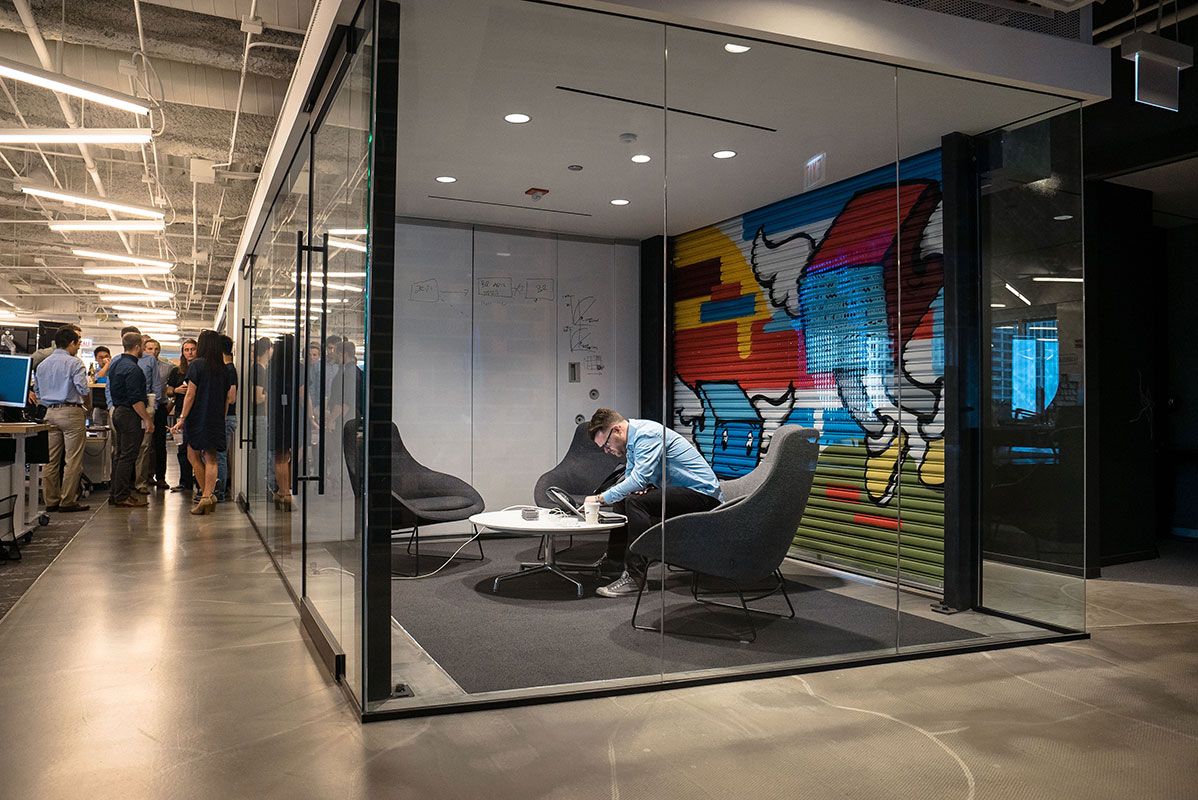Tech workplaces have been leading the way in terms of office designs, and workplaces that engage employees and support strong company cultures. Google, Facebook and LinkedIn all have state of the art and creative offices, but the trend isn’t exclusive to tech giants.
The Canadian tech industry is booming as the Toronto-Waterloo Region Corridor continues to grow and gain international recognition. “Silicon North”, as it is also referred to, is home to over 15,000 tech companies and 5,200 start-ups. It also houses leading edge and innovative workplaces that employees (200,000 tech workers) are loving.
We wanted to take a look at some of these unique workplaces so we went to the authority on them – Karel Vuong of “Spaces”. He started Spaces to promote the Canadian tech scene. As Director of People & Community at Diagram and Founder of Spaces, Karel also knows the importance that a workplace has on drawing, retaining and empowering employees.

NetSuite’s Waterloo Offices feature sit-stand desks and collaborative space (Photo: Karel Vuong)
What was the initial vision for Spaces?
My initial vision for Spaces was to create a directory that people could go to discover and take a look inside Canadian tech companies.
You can read a bit more about my initial vision here.
Spaces is all about looking at some of the coolest offices in the country. You have seen quite a few – do you see any trends in workplace design?
I could talk for hours about this one question, there are way too many trends to list!
To date, Spaces has profiled all sorts of workplace design elements like open offices, moveable meeting rooms, standing desks, and amenities like fitness rooms that bring personal life closer to work life.
If I could name just one trend, it would be a shift towards more private workstations.
While open concepts still prevail, there have been reports of the inefficiencies that arise from working in a less private environment. When the shift from cubicle farms to open offices first occurred, this represented a shift between two extremes. What I believe to be happening now is a balancing of these two paradigms to incorporate both worlds in workplace design.
The other effect this shift has had, is introducing choice and inclusivity in the workplace. It enables people to choose how they want to work. Balanced designs also allow organizations to show through their workplaces that they understand not everybody works in the same kind of way – and that’s okay.

Oracle’s Mediascape room for high-tech collaboration (Photo: Karel Vuong)
What is the most impactful feature you have seen in the spaces you’ve visited?
That’s a great question. The most impactful “feature” isn’t really a feature itself. It is the unique, cultural elements that are worked into a company’s space.
Of course, this “feature” varies between companies. But the unique feel of a space that embodies company culture makes it special. This is one of the best ways to make a space shine above the rest. With amenities and office layouts beginning to incorporate similar elements, companies have the power to differentiate themselves by using what they have that’s unique to them — their brand and culture.
For instance, Wattpad has a beautiful space that integrates its values, mission, and culture throughout the space. The Wattpad Tree showcases Wattpad stories that have been published in print. The openness and transparency that are core to the company’s values are also expressed through the office layout. The office space alone says a lot about the type of company that Wattpad is.
Will Spaces take a trip down to the SF Bay area any time soon?

TextNow’s recreation area and kitchen at their Waterloo office (Photo: Karel Vuong)
Yes, it will – but not in the way you think. Spaces was created with the intention of being Canada-first and Canada-only to promote exposure and discovery of our innovation ecosystem.
That said, I’ll be expanding Spaces to include remote offices of companies headquartered in Canada and offices of companies founded by Canadians around the world.
TextNow is an example of the first case. With their headquarters in Waterloo and a remote office in San Francisco, they are just one of many Canadian companies that have expanded beyond our borders to scale up their operations and reach the global market.
As for the second case, Pebble is a good example of a company founded by a Canadian, but is headquartered in Palo Alto, California. While they have an engineering office in Waterloo Region, they operate primarily in the Valley.
By including these offices, Spaces hopes to reveal and investigate the differences between spaces in Canada and the rest of the world, while continuing to retain the Canadian connection that makes Spaces unique.
More images from Wattpad’s Toronto Offices below:










